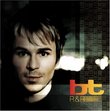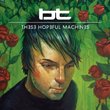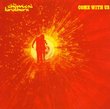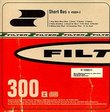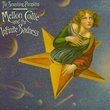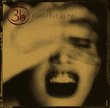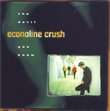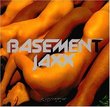| All Artists: Bt Title: Movement in Still Life Members Wishing: 0 Total Copies: 3 Label: Nettwerk Records Original Release Date: 6/6/2000 Release Date: 6/6/2000 Genres: Dance & Electronic, Pop Styles: Trance, House, Dance Pop Number of Discs: 1 SwapaCD Credits: 1 UPC: 067003015424 |
Search - Bt :: Movement in Still Life
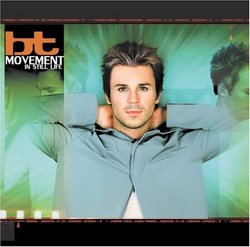 | Bt Movement in Still Life Genres: Dance & Electronic, Pop
BT's velvety take on trance techno, typified by unusually light, liquidy melodies, smooth edges, and roomy breakbeats, was first noticed in the U.S. via his exceptional remix of Tori Amos's "Blue Skies." That song and othe... more » ![header=[] body=[This CD is available to be requested as disc only.]](/images/attributes/disc.png?v=a4e11020) ![header=[] body=[This CD is available to be requested with the disc and back insert.]](/images/attributes/disc_back.png?v=a4e11020) ![header=[] body=[This CD is available to be requested with the disc and front insert.]](/images/attributes/disc_front.png?v=a4e11020) ![header=[] body=[This CD is available to be requested with the disc, front and back inserts.]](/images/attributes/disc_front_back.png?v=a4e11020) |
Larger Image |
CD DetailsSynopsis
Amazon.com BT's velvety take on trance techno, typified by unusually light, liquidy melodies, smooth edges, and roomy breakbeats, was first noticed in the U.S. via his exceptional remix of Tori Amos's "Blue Skies." That song and other like-minded U.K. singles that preceded it gave rise to yet another variation of trance music dubbed "dream-trance." It's an apt label. BT's dense, yet straightforward compositions and benevolent mixes incorporate themes of escape and rebirth, with songs that imprint themselves on your subconscious. On Movement in Still Life, never before available in the States, BT breaks through the wall that separates techno from out-and-out pop, incorporating verse-chorus-verse song structures. Furthermore, he allows his dreamy mix to wander into Fatboy Slim-esque big beat territory. As a DJ, he's clearly capable of branching into different styles. The smart house and choppy beats of the title track make that apparent. He's still playing with needles and wax on that track, though; "Shame," with its acoustic drum/guitar sound and accessible pop vocal track sounds ready-made for alt-rock radio, with only touches around the edges that betray the presence of a DJ. Other songs, such as "Running Down the Way," blend the two styles more evenly, utilizing a pop song format but keeping it clubby and decidedly nonacoustic. Given BT's U.S. success with the pop/club mix of "Blue Skies," as well as the accessible, anthemic style he tends to favor as a DJ, the record makes perfect stylistic sense. He'd be wise, however, to keep dream-trance close to his turntables, as the perfection of such tracks as "Dreaming" and "Godspeed" make it blissfully obvious that he has utterly mastered the sound. --Matthew Cooke Similar CDs
Similarly Requested CDs
|
CD ReviewsBT has some MADSKILLZ Geminiguy | Bloomington, IN | 12/28/2004 (5 out of 5 stars) ""Madskillz" being the opening song on this collection of dance infused anthems, I thought that this was going to be another one of those DJ albums where substance was sacrificed for sound. Fortunatley, "Never Gonna Come Back Down" was next and while it really made no sense at all, it still held my attention with its no nonsense approach. I love the song "Dreaming" because it starts off with the hint of being a lullaby like ballad but evolves smoothly into a trance like forray of beats and melodies. "Shame" has the sound of Depeche Mode written all over it and that influence makes the song so much more likable. The title cut is decent but kind of like "Madskillz" and BT just blows me away with "Satellite" a soft, accoustic driven song that has some rather depresing undertones. What I find interesting about this collection is many of the songs read like poetry and are emotionally expresive. Both "Godspeed" and "Smartbomb" have been featured in movie soundtracks and after listening to them, it is no shock as to why. This album is one of the best DJ albums out there and it delivers the goods without very many disapointments!" Genre defining J. Westerman | Washington, D.C. | 05/13/2006 (5 out of 5 stars) "I'm not going to write a tediously long review. I'm a professional musician. This is a record you need to hear. You will meet people that will dislike it. Regardless, this is one of those records that permanently changed the scene. You might not like it but if you care at all about the history/evolution of popular electronic music you need to know this record. The influence of this album from the very subtle to the drastic is apparent in nearly every meaningful breaks album since. I could go on and on about minor technical flaws and even more minor artistic flaws but it would all be academic. Educate your brain... and maybe at the same time you'll be fantastically entertained." BT is excellent. This version of MiSL is not. Sephiroth | 02/17/2007 (3 out of 5 stars) "Short version: The track selection and mixing on the UK version makes it the best BT album ever, in my humble opinion. The subpar selection of tracks, as well as the random placement of tracks and lack of mixing, make the USA version less than it ought to be.
Long version: I rank MiSL beside Hybrid's Wide Angle in terms of complexity, originality, composition, mood, and just plain groove. It is very obvious that BT lives and breathes music, and that he has been well-educated in the ways of his craft. However, I would not have bought this album had I not heard the UK version. The UK release of MiSL by BT is an EDM classic. This... thing that was given to us in the USA is a crime against the man's reputation. The seamless mixing that would make any DJ jealous is totally absent. Instead, each track just slams in or creeps up shyly. The songs are not bad, but they are not nearly as good as the selections featured on the UK release. On the UK version, there is not a bad song. On such mediocre fare as "Never Gonna Come Back Down", we are treated to a barely bearable voice spitting out very bad freestyle. The track would have been better if BT had not let some fool sing over it. While some of the USA-only titles are not bad (Smartbomb, for example), I would gladly trade all of them for "Giving up the Ghost" alone. All in all, I would not recommend buying this item. The UK version, believe it or not, really is worth the $40 when compared to the USA version. They both make me cry, but for totally different reasons." |

 Track Listings (11) - Disc #1
Track Listings (11) - Disc #1